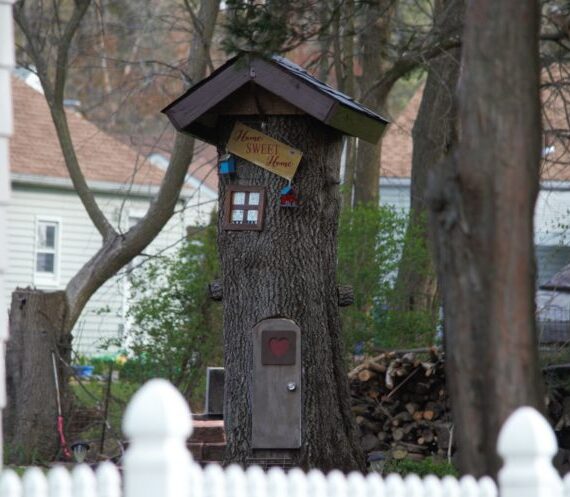“Rather than bury our heads in the sand and suppress our discomfort, we can harness and transform the distress we feel into meaningful actions and forms of connection”
–Britt Wray, in Generation Dread
Generation Dread is a book about climate anxiety, but interdisciplinary and intersectional thinking opens up ideas such as Wray’s about the importance of connection and meaningful action.
But how do we go from dread to the ability to move beyond it?

As it is said, a little knowledge is a dangerous thing.
Not knowledge.
It’s the “little” part that’s a problem.
The despair comes from knowing enough to have awareness of a problem without knowing enough about the complexity of it, the possible and real solutions.
The despairing approach sounds like:
“Everything about _______ is awful and there isn’t anything we can do to fix it (alternately: it’s too late to fix it) so I’ll just overcorrect and focus on my family and to hell with everyone else.”
That blank can be climate change. Gun violence. The ongoing violence in the Middle East. Car crashes.

We are in a time when, aside from situations with power outages, information could not be easier to come by, theoretically, anyway.
Those who benefit from, find comfort in, can only operate in a society of narrowness and sameness understand this. The surge in book banning did not come from nowhere. You do not have to look hard to find those who have bought into the lies. You will hear people, who perhaps have not set foot in a library in 60 years, get worked up over how “pornographic” books are available to children.
Y’all, I have looked for porn in the library, and trust me, they do not carry it. Not in the kids’ section, not in the tween area, not in the adult books.
There has been a concerted effort to misrepresent book content by those who wish to limit enriching and affirming information reaching people, especially youth. If someone’s whole power scheme is based on portraying a portion of the population as aberrant, wrong, depraved, sinful, or even non-existent, they can’t risk being contradicted by the library. Had this contingent any way to swiftly ban materials from bookstores, they’d be after them too.
The funny thing is that a lot of frequently challenged books aren’t even the best ones out there on these subjects. Were the MAGA/Tea Party/Moms For Liberty readers of any kind, they would know this.

Book bans are relatively easy to counter. First of all, librarians as a whole don’t take shit. Who grows up to be librarians? Mostly, people who were library kids. This is personal. These are the people who have the ability to order books you request, keep your reading history private, and make late fees go away (for those unlucky enough to be in a town where fines still exist). When there were attempts to get patrons’ records via the Patriot Act, guess who told the government (and I’m sure ever-so-sweetly) to go to hell? So, if the librarians themselves don’t stomp down the opposition, there are still other ways to make sure that those who need/want access to material can get them.
Do people forget that not so long ago we all simply passed books and zines around? I’m sure this never went away, but I can firsthand vouch for how at least as recent as the 90s, teens were able to get their hands on books because of classmates, coworkers, teachers, and in one case, The High School Boyfriend’s mother. These were not all racy books. One was a feminist bestseller of the day. So, okay, maybe something eyebrow raising at the time, but now this particular book that I won’t name seems antiquated and not remotely challenging. A lot of these exchanges, peer-to-peer, were driven by a few unspoken facts: we all had limited income and transportation, so it just made more sense to share what we had. This was before you could order books online. This was before there were Little Free Library stations popping up in every neighborhood.
And there’s this: we can anonymously take and leave books from Little Free Libraries. This is not a reliable way to find what one is looking for unless the owner intentionally stocks with banned books, but it is still a way.

The information flow feels trickier to manage online. We see it through the way social media platforms have been corrupted. Activists used Twitter to mobilize. Those who do not benefit from a more just society have taken it upon themselves to find ways to make their social media platforms less viable for those on the political left to organize. The purchase and rebrand of Twitter, along with the massive loss in functionality, has scattered many of those who’d been connected. No single other space has replaced former Twitter in this capacity, and we have yet to learn if this is a benefit or not. If we see enough people sharing communication across multiple platforms – I don’t mean everyone jumping on five different places, but enough folks making solid efforts to keep information flowing between them – then we possibly have an improvement. That’s a large IF. That is if people refuse tribalism in their online spaces.
And so much has already been written and said about how unreliable information spreads like wildfire. Take a look at the incendiary propaganda being spread right now about the Middle East violence. People get a little information, and believe it, without following up to see anything about the source. And if you’re wondering what this has to do with climate, hold on, we’re almost there.
Amid the disinformation about the Israel-Hamas war: straight up lies by none other than Fox News about climate change.
I spent years teaching (mostly) young people how to discern credibility of news sources, but – and this should be no surprise – it’s not the younger adult generations who are necessarily susceptible to fake news. Look at who buys into this propaganda and who seeks to control what everyone’s children are allowed access to in public libraries, and tell me what that venn diagram looks like.
This brings us back to the original point: we can make thoughtful choices rather than throw up our hands. Or, as Wyn Wiley put it: “inaction is an active choice.”

What action looks like is not, Thank God, cookiecutter. How many of us have avoided being shunted into one stiff, ill-fitting category or another, only to hear from supposed-allies that we are doing activism wrong? That we aren’t serious enough, radical enough, mainstream enough, nice enough, traditional enough. That we aren’t adhering to a model of activism that they immediately recognize. (Wyn Wiley has a spot on response for this as well. Go read the full interview)
Silence can be contemplative and be space necessary while educating oneself; at some point, though, silence does become complicity.
So, here is an action that does not require you to say a single word: show up for the book banning discussion at Lit Fest this Saturday. It’s at 1 PM. Listen. Take notes.
Climate Possibilities is a series about climate mitigation, along with resilience, resistance, and restoration. It’s about human habitat preservation. It’s about loving nature and planet Earth, and demanding the kind of change that gives future generations the opportunity for vibrant lives. Doomers will be eaten alive, figuratively. All photographs are taken in Hartford, Connecticut unless stated otherwise.


Kathy Leonard
Re: the social medias, the fediverse sites (especially our own Connecticut themed server, nutmeg.social) are the ones that really excite me, they harken back to an era of the internet where I was still surprised and delighted by what people were doing with it. I especially appreciate as well the resurgence of blogs, and the mix of the two now that WordPress supports the fediverse.
Zines really interest me, I wasn’t around when they were most popular, I think I’d like one satirically called “There’s nothing to do in Connecticut” that showed different things I go to or would like to